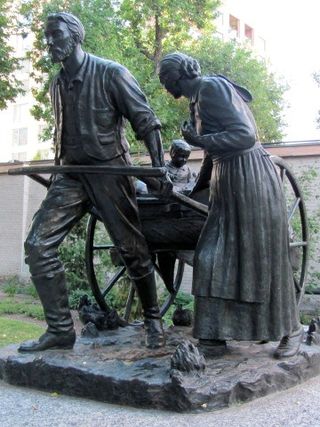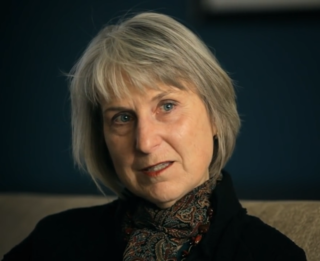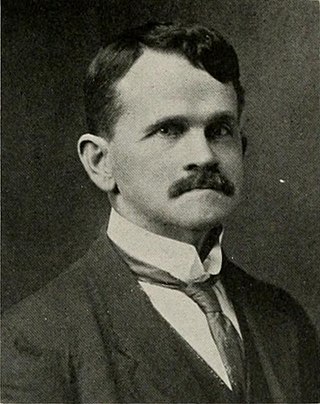
Mormons are a religious and cultural group related to Mormonism, the principal branch of the Latter Day Saint movement started by Joseph Smith in upstate New York during the 1820s. After Smith's death in 1844, the movement split into several groups following different leaders; the majority followed Brigham Young, while smaller groups followed Joseph Smith III, Sidney Rigdon, and James Strang. Most of these smaller groups eventually merged into the Community of Christ, and the term Mormon typically refers to members of the Church of Jesus Christ of Latter-day Saints, as today, this branch is far larger than all the others combined. People who identify as Mormons may also be independently religious, secular, and non-practicing or belong to other denominations. Since 2018, the LDS Church has emphasized a desire for its members be referred to as "members of The Church of Jesus Christ of Latter-day Saints", or more simply as "Latter-day Saints".
In Mormonism, the restoration refers to a return of the authentic priesthood power, spiritual gifts, ordinances, living prophets and revelation of the primitive Church of Christ after a long period of apostasy. While in some contexts the term may also refer to the early history of Mormonism, in other contexts the term is used in a way to include the time that has elapsed from the church's earliest beginnings until the present day. Especially in the Church of Jesus Christ of Latter-day Saints "the restoration" is often used also as a term to encompass the corpus of religious messages from its general leaders down to the present.

Leonard James Arrington was an American author, academic and the founder of the Mormon History Association. He is known as the "Dean of Mormon History" and "the Father of Mormon History" because of his many influential contributions to the field. Since 1842, he was the first non-general authority Church Historian for the Church of Jesus Christ of Latter-day Saints, from 1972 to 1982, and was director of the Joseph Fielding Smith Institute for Church History from 1982 until 1986.

Richard Lyman Bushman is an American historian and Gouverneur Morris Professor Emeritus of History at Columbia University, having previously taught at Brigham Young University, Harvard University, Boston University, and the University of Delaware. Bushman is the author of Joseph Smith:Rough Stone Rolling, a biography of Joseph Smith, progenitor of the Latter Day Saint movement. Bushman also was an editor for the Joseph Smith Papers Project and now serves on the national advisory board. Bushman has been called "one of the most important scholars of American religious history" of the late-20th century. In 2012, a $3-million donation to the University of Virginia established the Richard Lyman Bushman Chair of Mormon Studies in his honor.

The Mormon religion is predicated on what are said to be historical events such as the First Vision of Joseph Smith and the historicity of the Book of Mormon, which describes a detailed pre-Columbian history of the Americas. Joseph Fielding Smith, the tenth president of the Church of Jesus Christ of Latter-day Saints, declared that "Mormonism, as it is called, must stand or fall on the story of Joseph Smith. He was either a prophet of God, divinely called, properly appointed and commissioned, or he was one of the biggest frauds this world has ever seen. There is no middle ground." As Jan Shipps has written, "Mormonism, unlike other modern religions, is a faith cast in the form of history," and until after World War II, Mormons did not critically examine the historical underpinnings of their faith; any "profane" investigation of the church's history was perceived "as trespassing on forbidden ground."

No Man Knows My History: The Life of Joseph Smith is a 1945 book by Fawn M. Brodie that was one of the first significant non-hagiographic biographies of Joseph Smith, the progenitor of the Latter Day Saint movement. No Man Knows My History was influential in the development of Mormon history as a scholarly field.

View of the Hebrews is an 1823 book written by Ethan Smith, a Congregationalist minister in Vermont, who argued that Native Americans were descended from the Ten Lost Tribes of Israel, a relatively common view during the early nineteenth century. Numerous commentators on Mormon history, from LDS Church general authority B. H. Roberts to Fawn M. Brodie, biographer of Joseph Smith, have noted similarities in the content of View of the Hebrews and the Book of Mormon, which was first published in 1830, seven years after Ethan Smith's book.
New Mormon history refers to a style of reporting the history of Mormonism by both Mormon and non-Mormon scholars which departs from earlier more polemical or faith-based styles of history. Rather than presenting material selectively to either prove or disprove Mormonism, the focus of new Mormon history is to present history in a more humanistic and dispassionate way, and to situate Mormon history in a fuller historical context. Because it is a break from past historical narratives, new Mormon history tends to be revisionist. In many cases, the new Mormon history follows the perspectives and techniques of new history, including cultural history. The Mormon historian Richard Bushman described it as "a quest for identity rather than a quest for authority." New Mormon historians include a wide range of both Mormon and non-Mormon scholars, the most prominent of which include Bushman, Jan Shipps, D. Michael Quinn, Terryl Givens, Leonard J. Arrington, Richard P. Howard, Fawn Brodie, and Juanita Brooks.
The Neal A. Maxwell Institute for Religious Scholarship, or Maxwell Institute, is a research institute at Brigham Young University (BYU). The institute consists of faculty and visiting scholars who study religion, primarily the Church of Jesus Christ of Latter-day Saints. The institute is named after a former LDS Church apostle, known for his writings and sermons.

Terryl Lynn Givens is a senior research fellow at the Neal A. Maxwell Institute of Religious Scholarship at Brigham Young University (BYU). Until 2019, he was a professor of literature and religion at the University of Richmond, where he held the James A. Bostwick Chair in English.

Armand Lind Mauss was an American sociologist specializing in the sociology of religion. He was Professor Emeritus of Sociology and Religious Studies at Washington State University and was the most frequently published author of Sociology works on Mormons during his long career. A special conference on his work in Mormon studies was held in 2013 at California's Claremont Graduate University (CGU), the papers from which were subsequently published by the University of Utah Press in the format of a Festschrift, where he was honored as "one of the most prominent Mormon intellectuals of the late twentieth and early twenty-first centuries."
Claudia Marian Lauper Bushman is an American historian specializing in domestic women's history, especially as it relates to the history of the Church of Jesus Christ of Latter-day Saints. She helped found, and was the first editor of, the progressive LDS magazine Exponent II, has written American and LDS history books, and established a Mormon women oral history project at Claremont Graduate University.
Mormon studies is the interdisciplinary academic study of the beliefs, practices, history and culture of individuals and denominations belonging to the Latter Day Saint movement, a religious movement associated with the Book of Mormon, though not all churches and members of the Latter Day Saint movement identify with the terms Mormon or Mormonism. Denominations of the Latter Day Saint movement include the Church of Jesus Christ of Latter-day Saints, by far the largest, as well as the Community of Christ (CoC) and other smaller groups, include some categorized under the umbrella term Mormon fundamentalism.
Matthew J. Grow is an American historian specializing in Mormon history. Grow authored a biography of Thomas L. Kane, Liberty to the Downtrodden (2009), and co-authored a biography of Parley P. Pratt (2011), with Terryl Givens. He formerly directed the Center for Communal Studies housed at the University of Southern Indiana. As of 2012, Grow was the director of publications for the Church History Department of the Church of Jesus Christ of Latter-day Saints and was among scholars preparing for publication of the Joseph Smith Papers.
Patrick Q. Mason is an American historian specializing in the study of the Latter-day Saint movement. Since 2019, he has held the Leonard J. Arrington Chair of Mormon History and Culture at Utah State University.

Kathleen Flake is an American historian, writer, and attorney. She was the inaugural Richard Lyman Bushman chair of Mormon studies at the University of Virginia from 2013 until her retirement in 2024.
Reid Larkin Neilson is the assistant academic vice president (AAVP) for religious scholarly publications at Brigham Young University (BYU). He was the Assistant Church Historian and Recorder for the Church of Jesus Christ of Latter-day Saints from 2015 to 2019, and the managing director of the church's history department from 2010 to 2019.

William Henry Chamberlin Jr. was an American Mormon philosopher, theologian, and educator. His teachings and writings worked to reconcile Mormonism with the theory of evolution. He taught philosophy and ancient languages as well as science and math at several Latter-day Saints (LDS) institutions including Brigham Young University in the early 20th century. He was one of four educators at Brigham Young University whose teaching of evolution and attempts to reconcile it with Mormon thought, although strongly popular with students, generated controversy among university officials and the LDS community. Chamberlin has been called "Mormonism's first professionally trained philosopher and theologian."
This is a bibliography of works on the Latter Day Saint movement.










